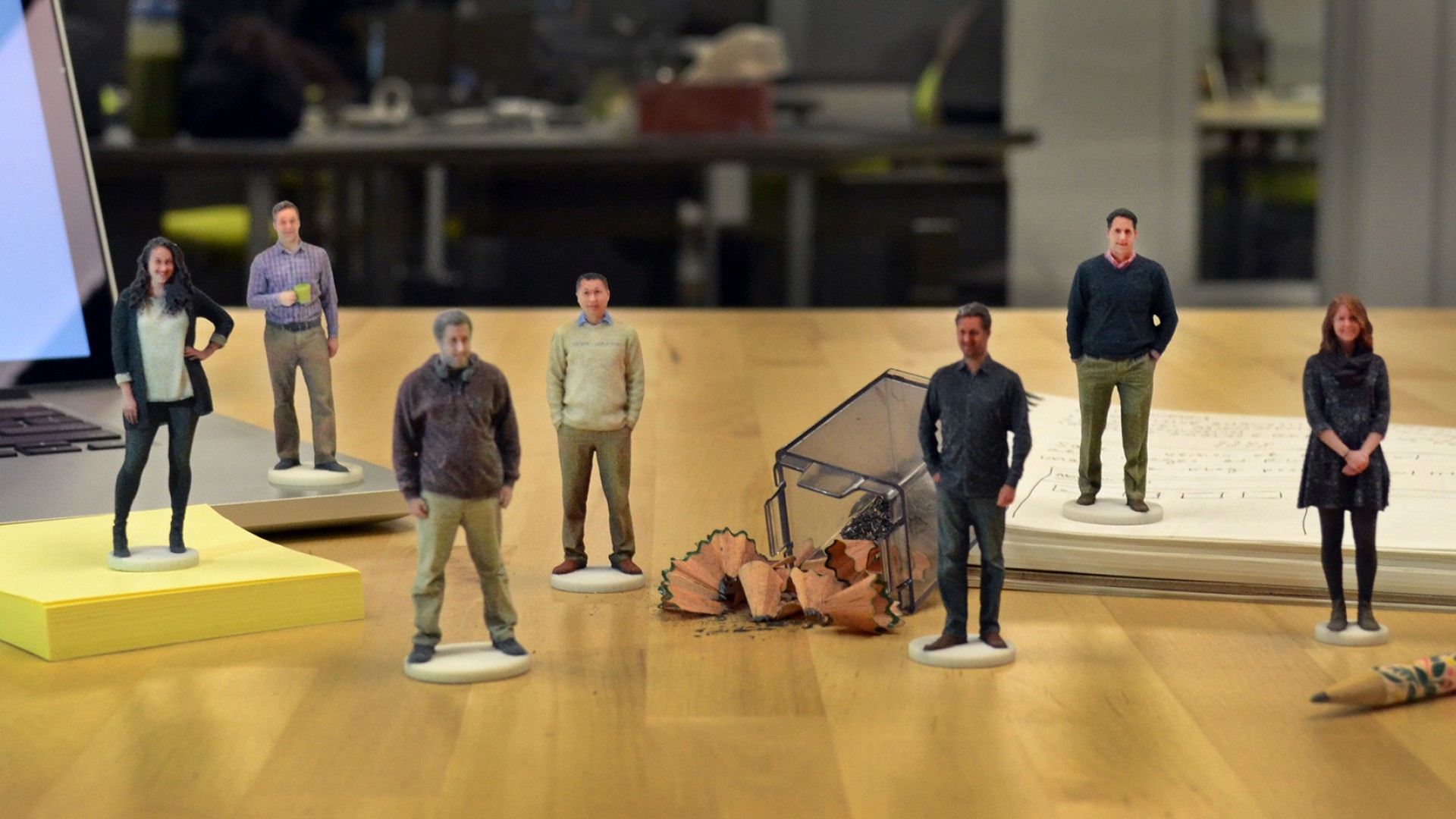Beyond the Dining Room: How Web Services, Social Media, and Mobile Apps Have Changed Tabletop Gaming
Tabletop Roleplaying Games have existed since the 1970s, but recent technological advancements have changed the way that some of these games are played.

The first edition of Dungeons and Dragons was published in 1974, and in the forty three years that have passed since its release, tabletop roleplaying games have remained prevalent in gaming culture. Many games have come and gone in that time, but the basic principles of these games have more or less stayed the same: get a few friends together, roll some dice, create a shared narrative through gaming, and have fun. While the core aspects of the medium are largely unchanged, advances in technology have changed how some of these games are run, and have introduced new tools and services for gamers to take advantage of.
Digital distribution and online shopping have played a role in the recent revitalization of the tabletop gaming medium. Gamers interested in tabletop roleplaying games have always been a niche market, and while games such as Dungeons and Dragons have gained more mainstream attention and acceptance in the past couple decades, they still don’t have the same mass appeal or interest as video games, movies, or television. Games such as Pathfinder, Dungeons and Dragons, and Fantasy Flight’s Star Wars tabletop roleplaying game are either popular enough or have the appropriate licensing deals to be sold in major bookstores, but more obscure games can be difficult to obtain outside of going to smaller gaming stores or gaming conventions. As a result, smaller companies have limited reach to those new to the hobby, or those without access to niche vendors.
The internet has introduced several major retailers that can provide gamers with either physical or digital copies of the materials they need to run or play their games. Amazon is the most notable of these retailers, but several sites that exist specifically to sell tabletop roleplaying games, such as Drive-Thru RPG, can provide gamers with books from smaller publishers. Many companies directly sell their books through their own webstores, allowing gamers to buy content directly from the creators. In terms of helping independent developers fund their projects, crowdfunding sites like Kickstarter and Indiegogo have aided in the development of both large and small scale games, and even well-known companies in the industry such as Onyx Path and Green Ronin have utilized these services to help fund their games.
Another way that the internet has affected how tabletop roleplaying games are played is through forums and news sites. These sites are mainstays of web culture and have been vital in facilitating communication between game developers and gamers. Before, if a rules clarification or change needed to be made, companies would often have to rely on reprints or articles in their own publications or general gaming publications to spread the word. Now, clarifications and errata can be announced on websites and be shared by users. Developers and other gamers can answer rules questions on official and unofficial forums, and forums have also provided a means for gamers to have discussions about character builds, stories from their games, or other aspects of the medium.
Video series and podcasts detailing similar parts of gaming culture, as well as allowing viewers and listeners to observe gaming groups in action, have helped with advertising the hobby and bringing in new gamers. Series such as the Adventure Zone and Critical Role have brought attention to the hobby from groups that might not have had much experience with it before seeing personalities they follow playing such games. Companies can also use video services such as Youtube and Twitch for their own marketing purposes, making videos and livestreams that advertise their upcoming releases, and highlight features that they plan to implement into the game, giving them an alternate platform for advertisement.
One of the most impactful, yet ironic, innovations in tabletop gaming that has become more commonplace in recent years is the removal of the tabletop from the equation and the adaptation of voice and video chat services. Anyone who has played in a tabletop roleplaying game will tell you that the hardest part of playing such games is getting a group of players to regularly meet at the same location. Work, school, family commitments, and other barriers get in the way of the best laid plans of gamers, and inconsistent scheduling is often the cause of a gaming group falling apart. Finding a gaming group if a gamer does not have friends who are also interested in the medium or a local game store to participate in pick-up or organized league games can be very difficult as well, and can also present a barrier for entry for those looking to get into the hobby.
Thanks to voice and video chat services such as Skype and Discord, gaming groups are less separated by barriers of distance, and the pool of potential players that can participate in a game is drastically increased. In addition to being able to play with their friends without needing to meet up at a public location or private residence, players can find games to play in through forums and other websites and interact with groups of people they otherwise could not meet up with. While Skype and Discord are two of the most popular options for voice or video chat, other services such as Twitch Client, TeamSpeak, or Ventrilo can be utilized by players to allow for online communication between them.
Web services have emerged in the past few years that assist players with running games in terms of facilitating gameplay in addition to assisting with communication between players. The oldest of these services is Fantasy Grounds, which has been available since 2004, and has official licensing deals with several tabletop roleplaying companies, including Wizards of the Coast. Fantasy Grounds has built in support for the games it has licensed, and a store that sells additional content for those games. The service's main draw is a virtual tabletop where players can create maps and control their characters during gameplay, simulating the experience of playing at a table while allowing gamers to play online. It also has tools that allow players to create and manage characters using the assets available to them.
Roll20, an application that launched in 2012, is similar to Fantasy Grounds in its basic functionality, but runs through browsers instead of functioning as a standalone application. The user community of Roll20 has developed assets such as character sheets for use in certain games, and the site has a collection of user made free assets and assets for purchase on its marketplace that can be used on the virtual tabletop. Roll20 also has its own voice and video chat system, allowing games to be run exclusively through the service and support for programmed dice algorithms, streamlining the pace of gameplay and supporting many different dice systems.
Wizards of the Coast launched a service called D&D Beyond in August 2017, developed by Curse, which allows players to join campaigns digitally, create and maintain character sheets using free and purchased assets, access information related to monsters and items using a compendium, and create their own content and share it with other players. While D&D Beyond is a comprehensive tool for managing characters for 5th Edition Dungeons and Dragons and for organizing games, it does not have the virtual tabletop functionality that its competitors offer.
Many of the services available to gamers to assist in running games through the internet are either free or use subscription fees. Roll20 has a free basic tier of membership which provides the essentials to users, while offering two paid plans with a monthly or yearly price ($4.99/49.99 and $9.99/99.99 respectively) with more features such as dynamic lighting in the virtual tabletop, custom scripts, tablet support, FX tools, and additional storage space available to those who pay for the service.
D&D Beyond is a free service that offers basic content to its users, but limits the content that users can create and utilize at that level. While a number of options from the game are available for use without spending any money, character options, items, and other parts of the game are excluded from the free version, and users can either purchase entire books at a cheaper rate than a physical copy and gain access to all of their assets within the service, or purchase individual assets. D&D Beyond also utilizes a subscription model, and paying a monthly, biannual, or annual fee for the service unlocks unlimited character slots, grants users the ability to share their created content and use content created by other paid users, and at the highest tier of subscription a user can grant players in their game access to materials that they’ve purchased. D&D Beyond’s subscription costs either $2.99, $14.99, or $25.99 for its basic paid tier, and $5.99, $29.99, or $54.99 for its advanced paid tier.
Fantasy Grounds has a free demo that allows gamers to play in games hosted by paid users, while offering licenses that cost either $39 or $149, or a $3.99 or $9.99 per month subscription fee, in order to access the full functionality of the service. Fantasy Grounds also has a store of additional content, including third party releases for many of its games. Unlike Roll20, where the basic features are provided for players for free, Fantasy Grounds’ free tier only allows gamers to demo and does not allow them to run their own games, or participate in a games that are not run by a player who has the highest tier of membership. Fantasy Grounds is not a browser service, unlike Roll20 and D&D Beyond, and supports Windows, Mac OSX, and Linux operating systems, with a Steam version available for Windows and Mac.
While there are many options for running tabletop games on desktop computers, there is less in the way of support on mobile and tablet yet from the larger services. Roll20 supports Android and iOS tablets, but only in campaigns run by paid supporters at its higher level of subscription, and its site is not optimized for mobile use. D&D Beyond has an app for Android and iOS and development, but no current mobile or tablet support. However, D&D Beyond’s interface is responsive and handles well on both mobile and tablet. Fantasy Grounds does not, at present, have a mobile or tablet version of its service.
Unofficial services created by fans of tabletop roleplaying games are prevalent on mobile platforms. Searching the Google play and iOs app stores for “Dungeons and Dragons” brings up a plethora of different apps that are meant to assist with running the game, including dice rollers, interactive character sheets, and lists of spells and items. In regards to voice chat services, Discord and Skype still work well in mobile for communicating across long distances, and as a result it is possible to play tabletop games on the go, only using a phone and a few apps.
Looking at the how technology has altered both tabletop games and the culture surrounding them is an example of how even low technology mediums have been altered by digitalization of traditional media and the increasing prevalence of the internet in every aspect of daily life. With more ways to play online becoming available and more developed, and more platforms and games supporting digital play, the medium will likely continue to evolve and find new players online. The evolution of tabletop gaming is an example of how technological advances can revitalize and reinvent forms of entertainment that have existed for decades, and alter how consumers and creators alike can interact with them.






